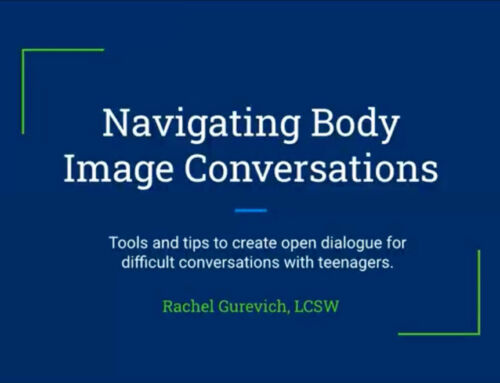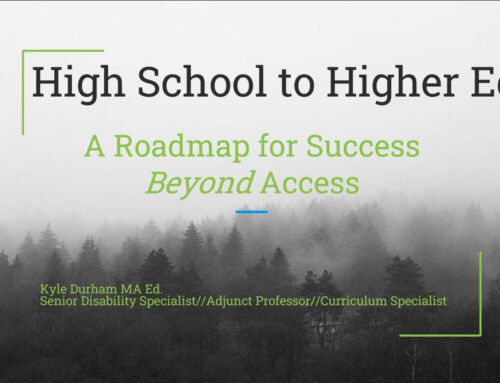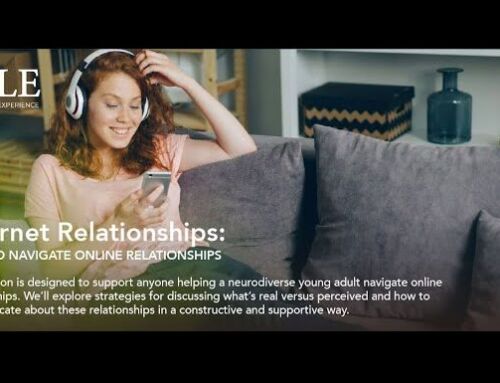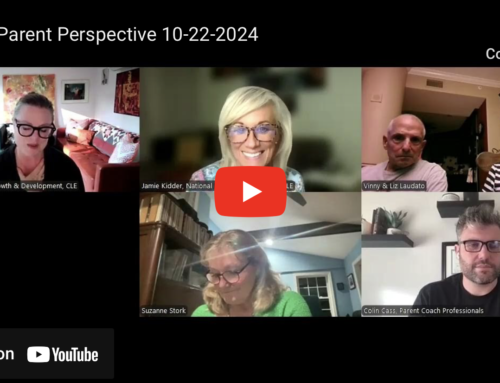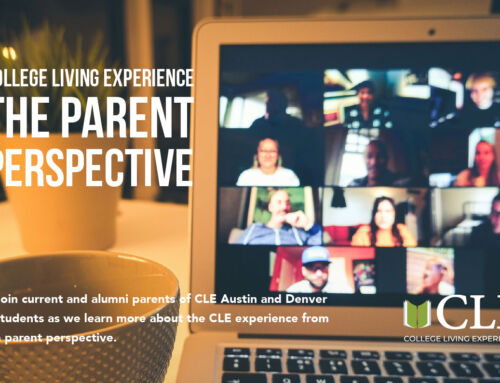Physical relationships (and yes, sex) for those with learning differences
By Dr. Dana Grote, Ph.D., Director of Psychological Services CLE Denver
As the clinical psychologist at CLE Denver, I often have conversations with students around dating and relationships. As with their neurotypical peers, many of the students I talk to are interested in finding a boyfriend or girlfriend and have questions about sex. This is developmentally appropriate, as the students I work with are young adults. Given their learning differences, however, some of the students I work with express confusion around the mechanics of sex (e.g., unsure of what exactly intercourse is) and seem to have limited knowledge about safe sex and contraception. The students come to me or their CLE mentor with their questions about sex because they do not know who else to talk to; it’s too uncomfortable to talk to mom and dad about it, and their peers may be struggling with the same questions and limited knowledge they have.
I feel these conversations are very important to help remove some of the uncertainty, fear and shame the students may have regarding their questions about sexuality (including pornography and masturbation) and, when or if they decide to have sex, they can take the necessary steps to prevent STI’s and unwanted pregnancy. I also support students who have strong feelings about wanting to wait until marriage to have sex, and we talk about how they can navigate dating while staying true to their values.
In her work with individuals with Asperger’s Syndrome, psychologist Dr. Isabelle Henault has explored why parents and professionals often shy away from educating students with Asperger’s Syndrome about sex. She has found that parents of adolescents and young adults with Asperger’s Syndrome, and the professionals who work with them, often feel like there are too many other issues to address and there is a concern, “If we talk to him [or her] about sexuality, he’ll [she’ll] want to investigate it.”
In response to this, Dr. Henault makes the following five points. She says, first, “there is no positive correlation between knowledge of, and interest in, sexuality.” Dr. Henault also makes the point, which I alluded to above, that “curiosity and exploration” are an important and healthy part of the development phases of adolescence and early adulthood, for neurotypical individuals and individuals with Asperger’s Syndrome alike. Thirdly, Dr. Henault asserts that “ignorance breeds fear,” and by providing information about sexuality to young people with Asperger’s Syndrome, they will be better equipped to exercise good judgment and react in a healthy way in various situations. In her final two points, Dr. Henault states that, “a behavior is less likely to be excessive if it is recognized, accepted and appropriate in a given context, rather than forbidden,” and that “urges and sexual desires cannot be repressed” and “must be directed towards appropriate expression.” While the five points described by Dr. Henault were written specifically from her work with individuals with Asperger’s Syndrome, I believe they apply to individuals with learning differences in general.
As parents and professionals, it is important when talking with young adults with learning differences about sexuality that we do not make assumptions about what they know. It is important to assess their knowledge about male and female anatomy and reproduction. It is critical to discuss contraception and STI’s. (The use of visual aids, such as books and videos, can be helpful when providing this information.) In addition, Dr. Sarita Freedman, a psychologist who specializes in ASD, and Dr. Wes Crenshaw, a psychologist who works with teens and young adults with ADHD, emphasize that a conversation around consent (“No means no!”) is essential, particularly given that individuals with learning differences may struggle with impulsivity and difficulty reading social cues and understanding others’ emotions.
Although they may be uncomfortable, we must not avoid conversations about sexuality with young adults with learning differences. By engaging in this necessary dialogue, we empower young adults with learning differences to make safer, better-informed decisions as they venture into the complex world of dating and sex.
SOURCES:
Asperger’s Syndrome and Sexuality: From Adolescence Through Adulthood, Isabelle Henault, Ph.D., (2006)
Developing College Skills in Students with Autism and Asperger’s Syndrome, Sarita Freedman, Ph.D., (2010)
Intimate Relationships and Sexual Health: A Curriculum for Teaching Adolescents/Adults With High-Functioning Autism Spectrum Disorders and Other Social Challenges, Davies and Dubie, (2012)
“The Birds, the Bees & ADHD: Teaching Your Teen About Sex — Mindfully,” Additude Magazine, Wes Crenshaw, Ph.D., (no date provided).




